There are calls on the Government to widen access to the Student Universal Support Scheme or SUSI to students who are from migrant or refugee backgrounds.
Nasc, the Migrant and Refugee Rights Centre, says hundreds of young people who will receive their Leaving Cert results this year will be unable to go to colleges or universities, because they do not qualify for a fee waiver or for financial support through the SUSI grant system.
Young people who were taken into care at an early age and those who have grown up in foster care tend to be impacted the most according to Nasc.
These young people are often granted what is known as an "exceptional Stamp 4".
While this type of residency permission allows people to live and work in Ireland, it does not allow holders to access SUSI grants.
Those who have 'Stamp 3' permissions usually do so because their parents have not naturalised as Irish citizens yet. They are not entitled to work.
'That's my huge question right now'
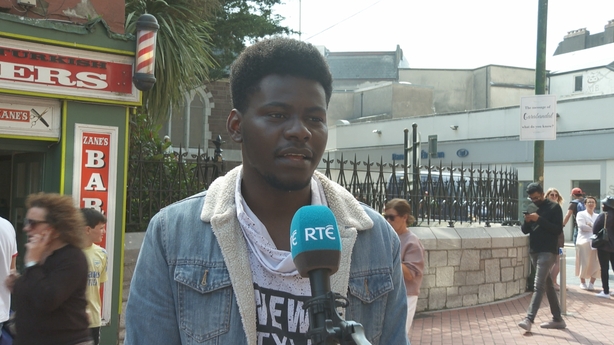
Brendan Nkwenzum has a Stamp 3 and he is facing a dilemma.
The fact that he is unable to work is a huge problem, he says.
His Dad is ill, and his mother had to stop working to look after him, so Brendan had to drop out of his IT course at Cork Institute of Technology because his fees were so expensive.
"It's the worst, I don't know what to do this year, am I go going to College or not, that's my huge question right now".
He says he simply cannot pay €12,000 in fees.
'SUSI could play a significant role'
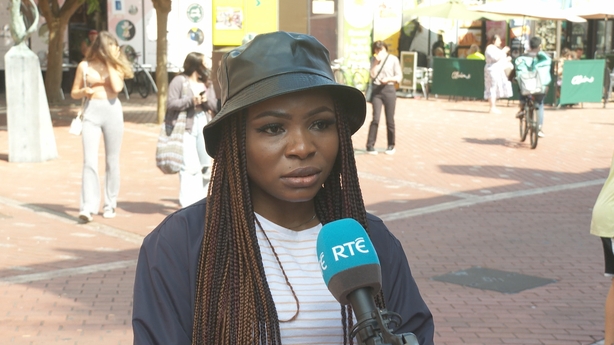
Riches Uwoghiren has just completed her Leaving Cert.
Overshadowing her studies has been the worry and anxiety about going to university without funding.
A SUSI grant would help her achieve her dream of an education to become a Social Worker in the future.
Ideally, she says she would like her education to flow from second level to third level and she says SUSI could play a significant role in helping that.
Tough to pay for college
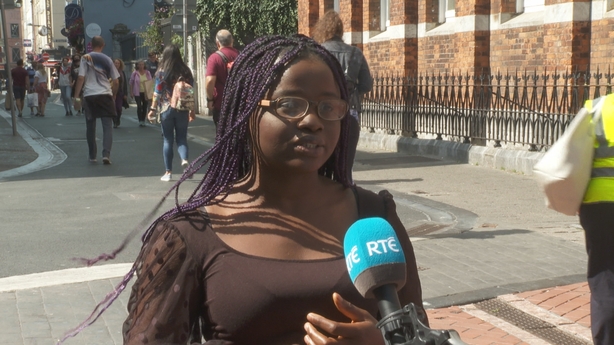
Gift Okoro who has an exceptional Stamp 4, has completed a degree in Social Care at the Munster Technological University.
With no grant, she says she struggled through college; working two jobs while she attended MTU full time.
She wants to do a master's in social work and is considering doing a course part time so she can work to pay for her education.
'It's stressful to be honest'
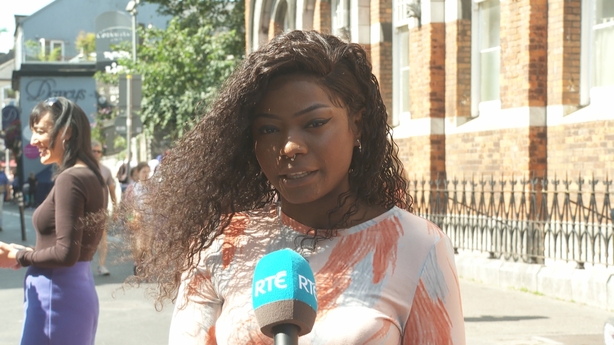
Memunat Elegushi attended primary and secondary school in Carraigtwohill in County Cork.
She applied but did not qualify for a SUSI grant to do hospitality in Cork Institute of Technology.
For now, she is taking another route by doing a course with the National Learning Network which includes work at the Metropole Hotel in Cork.
All of this she hopes will pave the way for a future in the hospitality industry.
"It's stressful to be honest", she says. "It's draining because you have to work extra hard to pay and save up and it's not really easy."
'I want to make it better for the future'
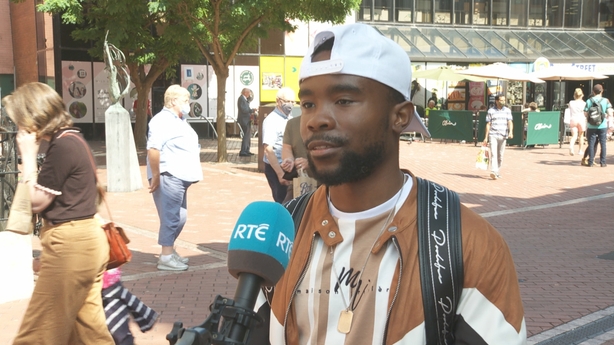
Qiqa Maqubela says unless migrants and refugees work, it is impossible for them to access third level education.
Annual costs of €3,000 a year mean many people drop out after the first year because they cannot afford to continue.
Qiqa, who has been in the Irish education system since primary school, is grateful that he has his Junior and Leaving Certificates which enabled him to apply for a pilot scheme grant.
Without those, he says he would not have been able to continue his studies in Community Development and Social Studies in MTU.
He hopes to go on to UCC to study Social Studies to work with asylum seekers and migrants and help people who are arriving here.
"I know what I went through, and I just want to make it better for the future", he says.
'It would be a simple matter of changing the regulations'
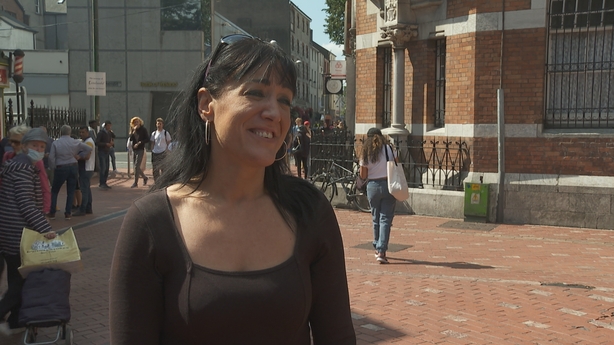
Susan Mackey, social worker and coordinator of Nasc's Connect Migrant Youth Project, describes it as "heart-breaking for the young people who’ve studied so hard, often in very adverse circumstances, to be denied an opportunity to go to college".
She says their futures are being stripped away from them.
The organisation has launched a video called 'I Dream', in which it calls on the Minister with responsibility for Higher Education Simon Harris to widen access to SUSI grants.
Nasc has also produced a resource booklet aimed at teachers, social workers and foster parents so they can identify the barriers in advance.
Ms Mackey says the legislation underpinning SUSI "gives the Minister the power to determine what nationality criteria he wants to impose. It would be a simple matter of changing the regulations for the Minister to update the policy."
Government response
The Department of Further and Higher Education, Research, Innovation and Science says the current nationality criteria for student grant purposes require a student to be an Irish national or a national of the EU/EEA, UK, or Swiss Federation national.
It notes that certain categories of non-EU students may be deemed to meet the nationality requirement if they hold an immigration status, which includes a person who has permission to remain in the State by virtue of marriage to, or a civil partnership with, an Irish national residing in the State, or as a dependent child of an Irish national residing in the State.
The Department says that possession of a 'stamp 4' does not automatically satisfy the nationality requirement of the student grant legislation.
However, it says the eligibility criteria for student grants, including the nationality criteria, is reviewed annually in the Department, and approved by the Department of Public Expenditure and Reform following consultation with various stakeholders.
"Minister Harris intends to engage with the Cabinet colleagues in relation to these criteria", it says.






